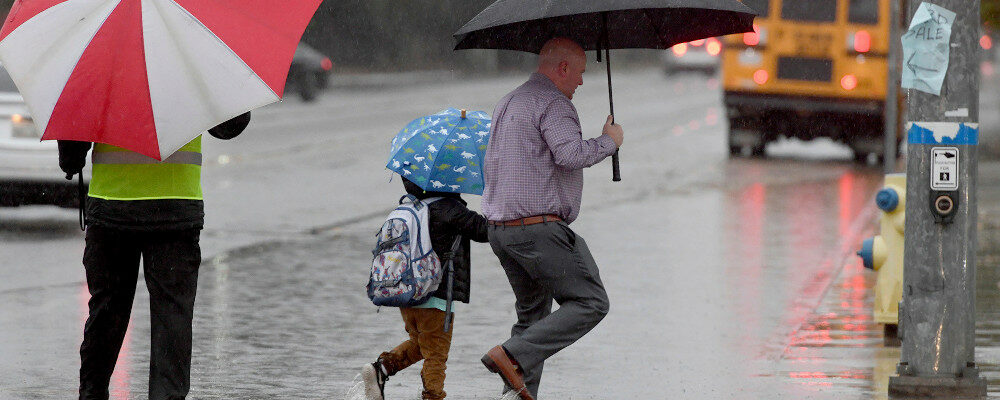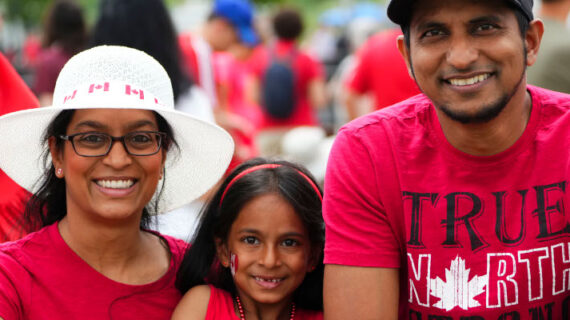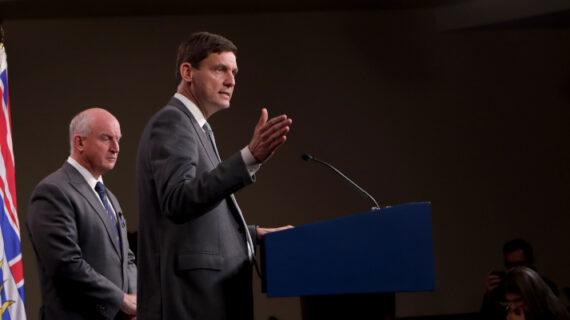When today’s dean of conservative columnists, George Will, began his newspaper column more than 40 years ago, he asked the dean of his own era, William F. Buckley Jr., how he came up with ideas for his own twice-weekly column. “The world annoys me at least twice per week,” was Buckley’s reply.
As someone who tries and fails to resist the several things that annoy me each day on Twitter, I’ve tried to take a different approach, and rather write a column per year when I’m moved by things that are noble and worthy.
One of my best friends, Sam, said his final goodbye to his grandfather this past weekend. Edward Vanderveer was born in northern Holland, 10 months ahead of the Nazi occupation. His family was active in the resistance, which meant he was too, as a toddler and young boy. In addition to some guerrilla-style warfare, they hid and transported people (Jews and other resistance members), weapons, and contraband vehicle parts. His immediate family all survived the war, including the Nazi-caused Dutch famine of 1944-45, and immigrated to Canada just afterward, where he made what he could as a mechanic’s hand and tow-truck driver.
Sam’s grandfather started at Bell Canada at 22 years old, and one of his first jobs was maintaining generators on the Distant Early Warning (DEW) Line, during the Cold War. This brought him to Resolute, Frobisher Bay, Happy Valley, and other remote parts of the High Arctic. His time there exposed him to the St. Laurent government’s poorly conceived and even more poorly executed High Arctic forced relocation program.
The horrors of that program, witnessed at a young age by Edward, created a new Canadian devotee, for the rest of his life, to the project of reconciliation with Canada’s Aboriginal peoples. When he died, just last week, a signed copy of Stephen Harper’s apology to former residential school students hung on his wall; one of the few keepsakes he insisted follow him into his long-term care facility, in spite of the ravages of dementia.
A good man, to the end.
Just last year, in January 2022, my own grandfather, Gerry, went to be with his Lord. A man defined and remembered for his goodness, from rural British Columbia, who was fortunate to have the majority of his 87 years blessed by good health.
He used his years to study, teach, and nurture. An educator by training and by passion, he taught in both elementary and secondary schools and earned four postsecondary degrees, a BEd, MRE, MEd, and a DEd. He worked for the Vancouver School Board, as a teacher, later moving to become the principal of Kerrisdale and Selkirk schools. He was appointed to increasingly senior roles, including Area Superintendent, Superintendent of Schools, and Superintendent of District Services.
I am infrequently moved to tears. But the feeling I had reading the brief summary of the long and great life of Sam’s grampa, Edward Vanderveer, reminded me of the tear-blurred pride I felt hearing my own father eulogise my grandfather, Gerald Staley, just last year.
My friend Sam and I have a few things in common, including that we’ve both worked for those who would be widely considered “great men.” A prime minister, ministers, CEOs—men who will be recorded in the broader annals of our times. Yet I am struck by the inheritance we share as heirs, not to great men, but to good men.
Men whose goodness made them great.
What could be more worthy of celebration, of putting pen to paper and etching something on the unknown future unfurling before us, than the greatness of good men?

We’ve learned in our short years wrapped in this mortal coil that goodness is worthy of celebration, yet so infrequently celebrated. So let this be that: a celebration of goodness.
When my grandfather Gerry passed, for many weeks former students and colleagues emerged, writing to tell my father and his sister of the impact their dad had, and how his goodness stamped itself on them and made them better men and women. Sam’s grampa had that same impact on his community. A great goodness that emanated, spreading to those he knew, and made his community so much better for his life, and his example.
There’s a well-known Canadian thinker who encourages young people to make their beds; to take care of their own lives before trying to take on the world. But what to do next, once your own life and family are in order?
What a blessing to have learned from men who knew the answer, and who, after building good and strong families, moved forward to build good and strong schools, churches, and communities. How blessed we are, to have been raised by good men, who had their own piece of the world in order.
The true tragedy of good men is the sadness we feel when they’re gone, and as HM The Queen said about her late husband, “grief is the price we pay for love.” Yet, these moments of sadness teach us something that cannot otherwise be learned. That goodness and a life well-lived have a reach that extends further, and soaks deeper, than our grandest ambitions.
In our youthful hubris we long for greatness and impact, but the lesson of these men is that there is no greater impact we can have than to be good. In being a loving example. In being fair to those around us. The example these good men taught Sam and me is so profound it wouldn’t be honest to pretend like I have the words to sum it up, so I’ll borrow some instead: blessed are the pure in heart, for they shall see God.
To Gerry, and to Edward, thank you for the example of the greatness of your goodness. May we find solace in the eternal truth, that blessed are those who mourn, for they will be comforted.




